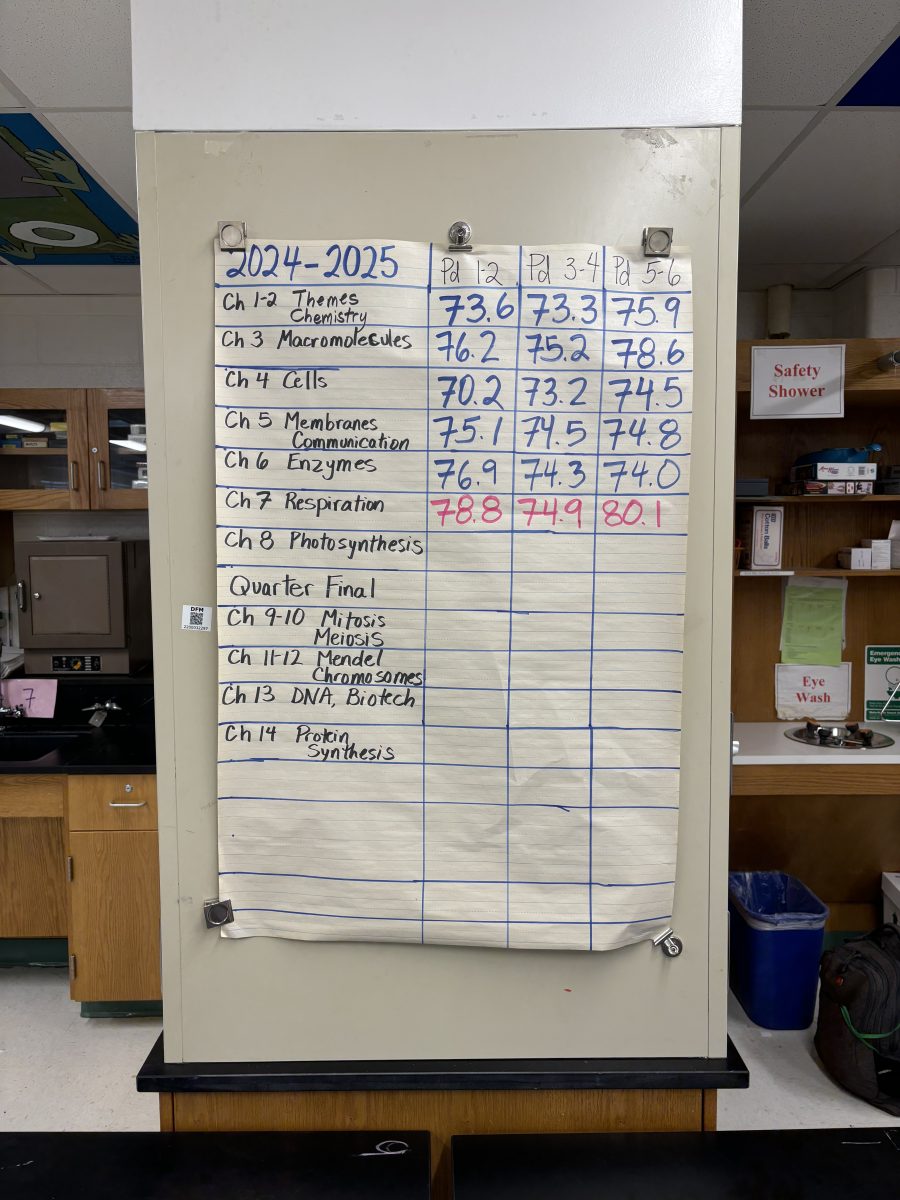AP Biology is notorious for being one of the highest-level science classes available at WJ. The students who excel in science-related courses and enjoy STEM subjects tend to make their way into one of the AP Bio double periods by the end of their time in high school. Even though the class has become more popular recently, its unusual lack of issues with cheating has remained the same.
This may have to do with the fact that students enrolled in the course are generally high achievers who don’t need answers from other students to succeed. AP Bio attracts a smaller sample of students than on-level or honors classes, or even other APs. Because of this, the students tend to share some characteristics, like academic curiosity or a good work ethic, which might explain the level of integrity within the class.
“The students who take AP Bio are generally interested in the class because it’s not a core class,” AP Bio teacher Michelle Tseng said. “It is a double period, so it takes a certain level of commitment to take the class as opposed to other AP classes that might just be single periods.”
Being academically dishonest in such a rigorous course seems counterproductive to students in AP Bio. Learning biology and preparing for college-level science courses are major motivators for many students taking the class, and cheating would defeat the purpose.
“Students in AP Bio work really hard and when people cheat it discredits the work they put in,” senior Timmy Gaul, an AP Bio student, said. “When people cheat it messes up the averages and it reflects a false understanding of the content.”
Gaul’s opinion reflects another important aspect of the AP Bio class environment. In the AP Bio classroom, the average score of each class for tests are posted for all the students to see. This contributes to some competition between the different sections of AP Bio.
“We have class averages so you can see how each class performs compared to other ones,” Tseng said. “It’s somewhat of a competition because at the end of the quarter, whichever class has the highest averages gets a small prize. I also have a histogram of the scores of everyone in the class so you can see how you perform compared to other people as well.”
Many students find this to be a positive addition to their learning experience. It is not purely to foster competition within the class or between periods; rather, it shows students their test performance compared to other individuals and other classes, helping them understand what topics they are comfortable with, and which ones they need to spend a little more time on. The different classroom additions the AP Bio teachers put in place cause students to see their scores more often, and possibly note their own improvement.
“The tracking system administered in the classroom allows me to track my personal success, creating a competition with myself,” senior Amit Sabba, an AP Bio student, said. “I want to get a higher percentage every time.
Additionally, if later periods are consistently receiving higher scores, it can indicate that they are getting help from students who take the class earlier in the day.
“I think the class averages create healthy competition between the classes,” senior Stella Lichter, an AP Bio student, said.“I also think it discourages people in the earlier periods from giving answers to the later periods so the scores are more even.”
Many students enrolled in AP Bio do happen to have a competitive edge. The teachers may be channeling that into something productive, instead of something that could create a less collaborative environment within a class.
“I love to win and so do my classmates. I feel that the demographic of the class plays a role because the kids are capable of competing with one another,” Sabba said. “The averages by the end of the quarter come down to 3% differences, and by being so close together every question matters so we want to keep the tests an even bigger secret.”
The level of healthy competition in AP Bio, supported by the teachers, is one of the things that make the course unique. Year after year, students benefit from the meaningful learning they do in this course, and the competitive quality of it could be one of the reasons why.
“Competition can be a motivator in a sense,” Tseng said. “You’re always trying to strive for the best, you never want to be complacent. So I think having some sort of competition encourages you to do better each time.”
Categories:
Academic competition in AP Bio classes prevents cheating
The class average grades for each AP Bio test hang posted in the classroom for all students to see. Many students appreciate the sense of friendly competition that is fostered as a result of this system.
Story continues below advertisement
0
Donate to The Pitch
$556
$1000
Contributed
Our Goal
Your donation will support the student journalists of Walter Johnson High School. Your contribution will allow us to purchase equipment and cover our annual website hosting costs.
More to Discover
About the Contributor

Gil Gordon, Online Editor-in-Chief
Gil is excited for his second year on The Pitch as an Online Editor-in-Chief. In his free time, he plays Ultimate Frisbee on the WJ Pitchers Team and spends time hanging out with his friends. He loves writing about music and worked as a Print A&E Editor.








